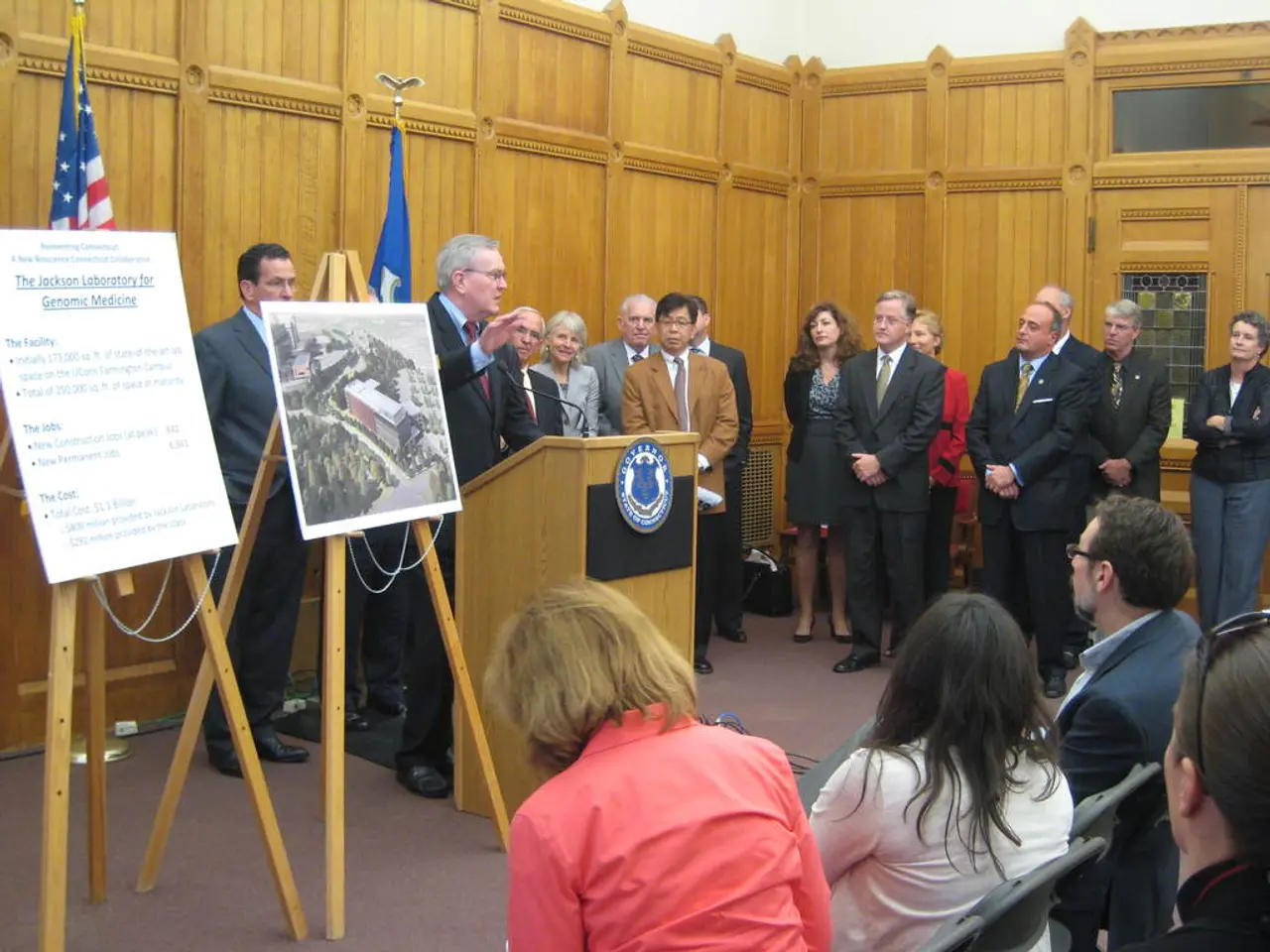"Asaduddin Owaisi Criticizes Glorification of RSS in Independence Day Speech as a Disrespect to the Freedom Struggle"
Modi Praises RSS on Independence Day, Sparking Controversy
In a historic move, Prime Minister Narendra Modi acknowledged the Rashtriya Swayamsevak Sangh (RSS) during his Independence Day speech this year, marking the first time he mentioned the organization in his twelve such speeches. Modi described the RSS as the “largest NGO in the world” and hailed its dedicated service to the nation as part of its centenary celebrations.
The choice of the Red Fort—a historic symbol of Indian independence where the first Prime Minister Jawaharlal Nehru hoisted the national flag in 1947—significantly elevated the RSS's status from a partisan organization to one portrayed as a national institution. This move was seen as an intentional gesture by Modi to placate RSS leadership and publicly integrate its ideological legacy with the formal narrative of Indian nationhood.
The RSS, founded in 1925 as a Hindu nationalist volunteer organization, did not participate in key freedom movements such as the Non-Cooperation Movement, Civil Disobedience Movement, or Quit India Movement, which were central to India’s independence fight against British rule. Some members, like Lala Hansraj, provided shelter to freedom fighters during the Quit India Movement, but the organization as a whole remained largely absent from mainstream independence movements.
This selective praise sparked sharp criticism from opposition parties and historians. Critics argue such eulogizing from the Red Fort undermines the secular and non-partisan character of the Independence Day celebrations and disrespects the contributions of multiple freedom fighters, including Mahatma Gandhi, Sardar Patel, and B.R. Ambedkar. They see it as an attempt to rewrite history and politically appropriate national symbols for partisan ends.
The Bharatiya Janata Party (BJP), however, defended the move by citing Nehru’s 1963 invitation to the RSS to join the Republic Day parade, interpreting this as a precedent for recognizing the RSS’s patriotic credentials.
Meanwhile, Asaduddin Owaisi, the AIMIM chief, questioned why Prime Minister Narendra Modi praised the RSS from the Red Fort on Independence Day instead of Nagpur, the RSS headquarters. Owaisi urged people to reject the hate and division spread by the Sangh Parivar, and reminded citizens of the importance of studying "real history" and honoring the real heroes. He also criticized the RSS for promoting Hindutva, an ideology that emphasizes Hindu cultural and national identity, and for its stance during the independence movement, which was seen as a collaboration with the British.
The RSS was banned in 1948 after a former RSS member, Nathuram Godse, assassinated Mahatma Gandhi. The ban was later lifted when RSS leader MS Golwalkar pledged loyalty to the Indian Constitution. However, Owaisi stated that the RSS never participated in India's freedom movement and "hated" Mahatma Gandhi, as he mentioned in his 'X' post.
In a recent post, Owaisi also alleged that Modi's speech was an attempt to legitimize the RSS's role in India's freedom struggle. He further criticized the RSS for promoting an ideology that is antithetical to the values of India's Constitution, as expressed by Owaisi himself.
In summary, Modi's praise of the RSS on Independence Day from the Red Fort has sparked controversy, with opponents viewing it as a politically motivated revisionism that disrespects India’s pluralistic freedom history. The RSS’s historical role in the freedom struggle is contested, and the organization's ideology continues to be a subject of debate.
Politics surrounding war-and-conflicts and policy-and-legislation have escalated amid the controversy sparked by Prime Minister Narendra Modi's acknowledgment of the Rashtriya Swayamsevak Sangh (RSS) during his Independence Day speech. General news outlets and crime-and-justice forums are abuzz with discussions about the RSS's historical absence from key independence movements and its controversial ideological stance, shedding light on the ongoing debates about the organization's role in national politics.







